
Jan 26, 2016
The president of the Malaysian Trades Union Congress (
MTUC), Mohd Khalid Atan, passed away this morning, reports MTUC Secretary-General N Gopal Kishnam. The MTUC is a Solidarity Center ally.
“MTUC is deeply saddened by the loss of the most credible individual who gives priority to the interests and welfare of workers,” said Gopal in a statement today.
Khalid, 63, was first appointed by the Congress as its president in 2011 and was reappointed in 2013, according to Astro Awani, a Malaysian news outlet.
MTUC is at the forefront of protecting worker rights, including documenting the exploitation of hundreds of migrant workers in Malaysia.
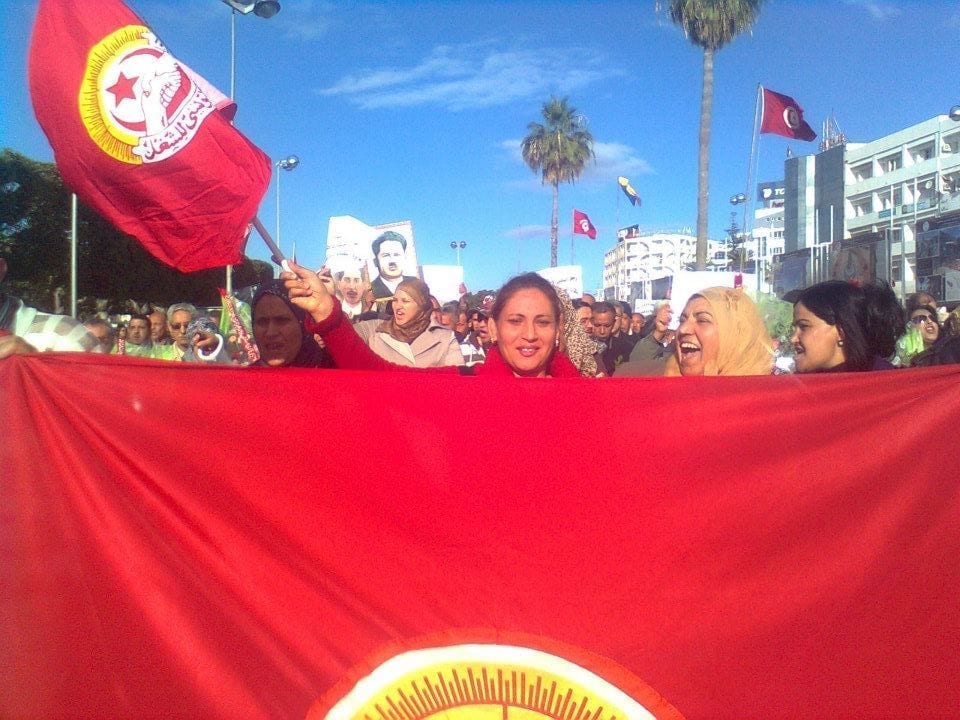
Jan 23, 2016
Days of economic protests in Kasserine, Tunisia, are the result of “the persistent marginalization” and “the ruling elite’s failure to achieve the hopes and expectations of Tunisians,” especially the young, according to the country’s union federation, Union Générale Tunisienne du Travail (UGTT).
“The UGTT supports the legitimate demands of hundred of thousands of marginalized and unemployed,” the federation said in a statement. The UGTT, a Solidarity Center partner, is calling on the government to “take urgent measures to remedy to this situation and to engage in a constructive and serious dialogue.”
Protests began on January 19 after a man committed suicide reportedly because he was denied a government post. Kasserine, with few jobs and a high poverty rate, is among many cities and towns in Tunisia’s central and border areas where workers, especially young people, are unable to support themselves and their families.
The government declared an indefinite nationwide curfew yesterday. Police use of tear gas to disperse the crowds sparked protests in several other towns, including Tunis, the capital, where hundreds took to the streets.
The UGTT is urging people to demonstrate peacefully and avoid violence, and is calling on the government, political parties and civil society organizations to join in national dialogue to address social tension and develop a strategy to fight unemployment.
The events echo the December 2010 suicide of a 23-year-old market vendor, Mohamed Bouazizi, whose death sparked protests for jobs and democracy that spread quickly across the country and ignited the Arab uprising.
Tunisian trade unionists, supported by UGTT, played a central role in the 2011–2012 revolution, and public outcry led to the ouster of President Zine el-Abidine Ben Ali, who had ruled Tunisia for 23 years, holding sway over a large percentage of the Tunisian economy, controlling real estate, hotels, airlines, telecommunications and automobiles.
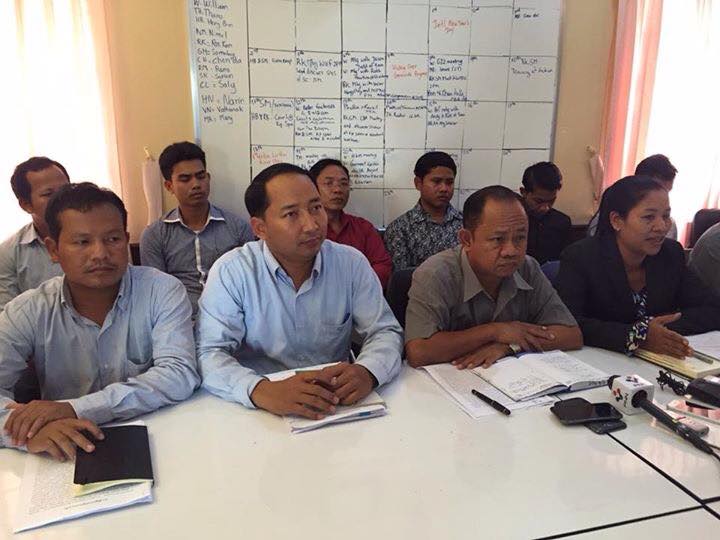
Jan 20, 2016
Union leaders are asking the Cambodia Royal Government and National Assembly to suspend adoption of a pending trade union law because of restrictions it would place on the freedom to form unions, collectively bargain and strike.
Following a strategy meeting today chaired by the International Trade Union Confederation Cambodia Coordinating Council, a dozen union leaders issued a joint statement calling on parliament to accept the group’s 17 previously submitted proposals. Unions want to see the draft labor law expanded to cover domestic workers, civil servants, state employees and informal economy workers, and seek more protections for the right to form unions and bargain collectively, in accordance with international labor standards.
The law “visibly restricts” worker rights that are recognized by the International Labor Organization (ILO), including the freedoms to form unions and bargain collectively, the unions said in a statement released at a press conference following their meeting.
The unions added that is essential to align Cambodian law with the international conventions it has ratified, including ILO conventions, as well as for promoting “the interests of all the workers and society, as well as our next generation.”
Union leaders have met several times with members of the Special Committee of the Parliament in charge of drafting the law, but say their detailed responses and recommendations have not been seriously considered.
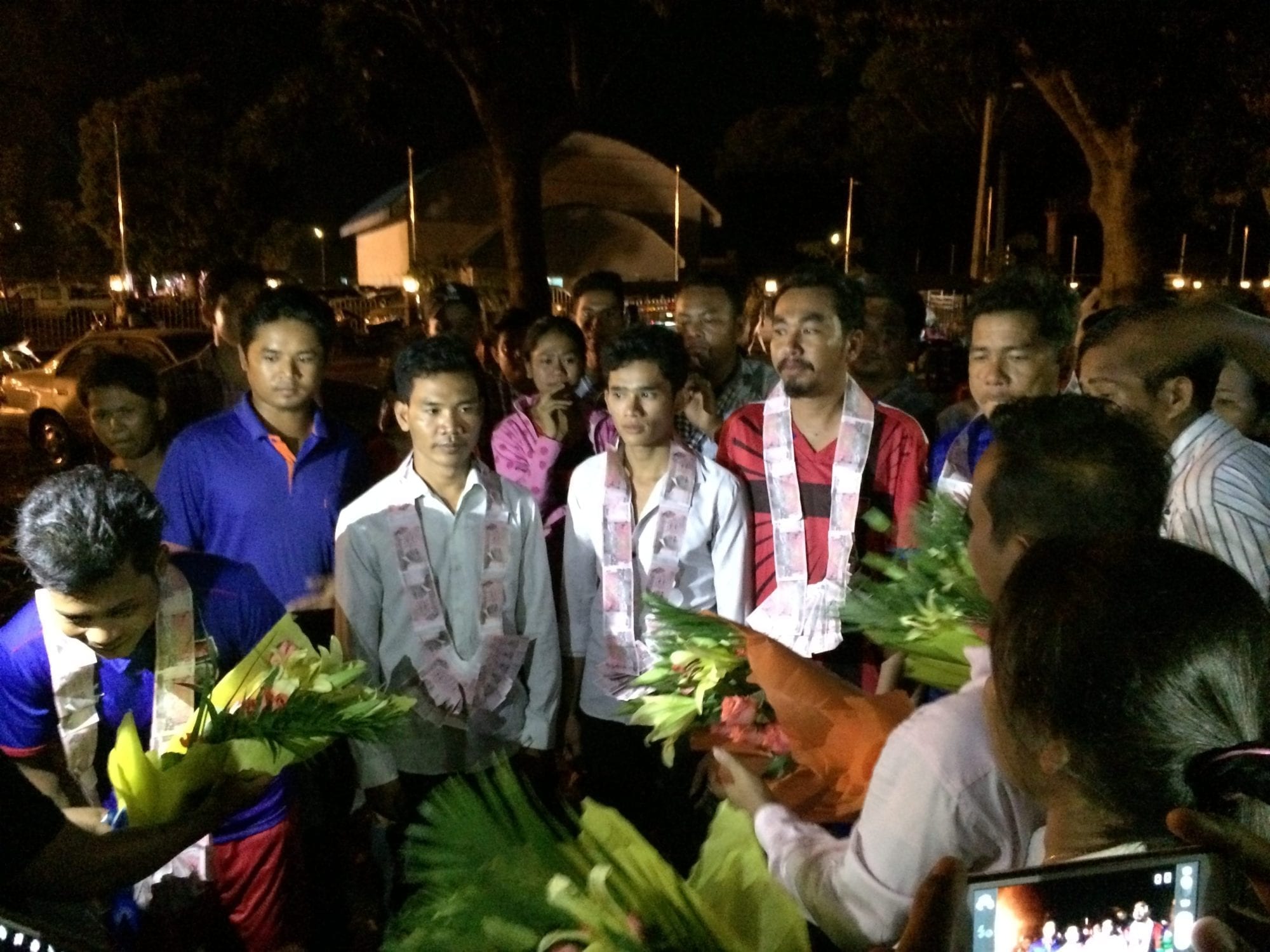
Jan 19, 2016
Five leaders of the Collective Union of Movement of Workers (CUMW) in Cambodia were released from detention today after spending nearly a week in prison for seeking to assist striking garment factory workers who sought their support. The Solidarity Center legal team in Phnom Penh was instrumental in securing the five men’s freedom.
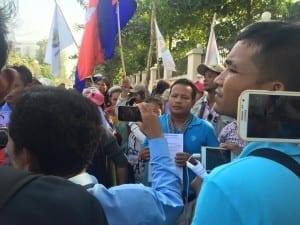
CUMW President Pav Sina said without support from the Solidarity Center, the union would have been unable to secure justice for the five organizers. Credit: Solidarity Center
Speaking at a gathering this evening to mark the release of the five union leaders, CUMW President Pav Sina said without support from the Solidarity Center, the union would have been unable to secure justice for the five organizers.
The organizers say they were beaten and arrested on January 12 when they sought to meet with the workers at the factory. Five other workers were beaten, with four suffering serious injuries to their eyes, heads and hands. The workers, who make sweaters, had sought the union’s assistance in helping them achieve workplace improvements that include lengthening work contracts from three months to a year; doubling daily pay for holiday work; and providing additional piece work pay.
At a rally in early January, the five CUMW leaders joined workers outside the factory in a solidarity rally which was disrupted when the president of the employer-controlled union ordered his group of workers to destroy CUMW materials and loud speakers. Several days later, more than 400 workers protested outside buildings housing the Prime Minister and National Assembly to further press for their rights at work and the next day, more than 500 workers gathered at the factory and at the court to demand release of the union organizers.
Short-term Contracts Make It Hard for Workers to Win Better Wages
Cambodia’s garment workers “often experience discriminatory and exploitative labor conditions” according to a Human Rights Watch report last year, which cited short-term contracts as contributing to the often abusive conditions.
“The combination of short-term contracts that make it easier to fire and control workers, poor government labor inspection and enforcement, and aggressive tactics against independent unions make it difficult for workers, the vast majority of whom are young women, to assert their rights,” the report stated.
An estimated 700,000 workers in Cambodia sew and package more than $5 billion worth of clothing, textiles and shoes every year, making up at least one-third of the country’s gross domestic product. Yet workers currently earn far less than they need to cover expenses, according to a study of garment workers and their expenditures, conducted by labor rights groups, including the Solidarity Center.
Garment workers across Cambodia have waged a series of rallies and strikes to protest low wages, most recently in October, when some 21,000 garment workers from six unions at more than 60 factories rallied for a higher minimum wage. In 2014, tens of thousands of garment workers took part in a series of mass protests demanding a living wage. At one rally, Cambodian security forces killed five workers and injured more than 60 and resulting in the arrests and dismissals of dozens of workers and union leaders.
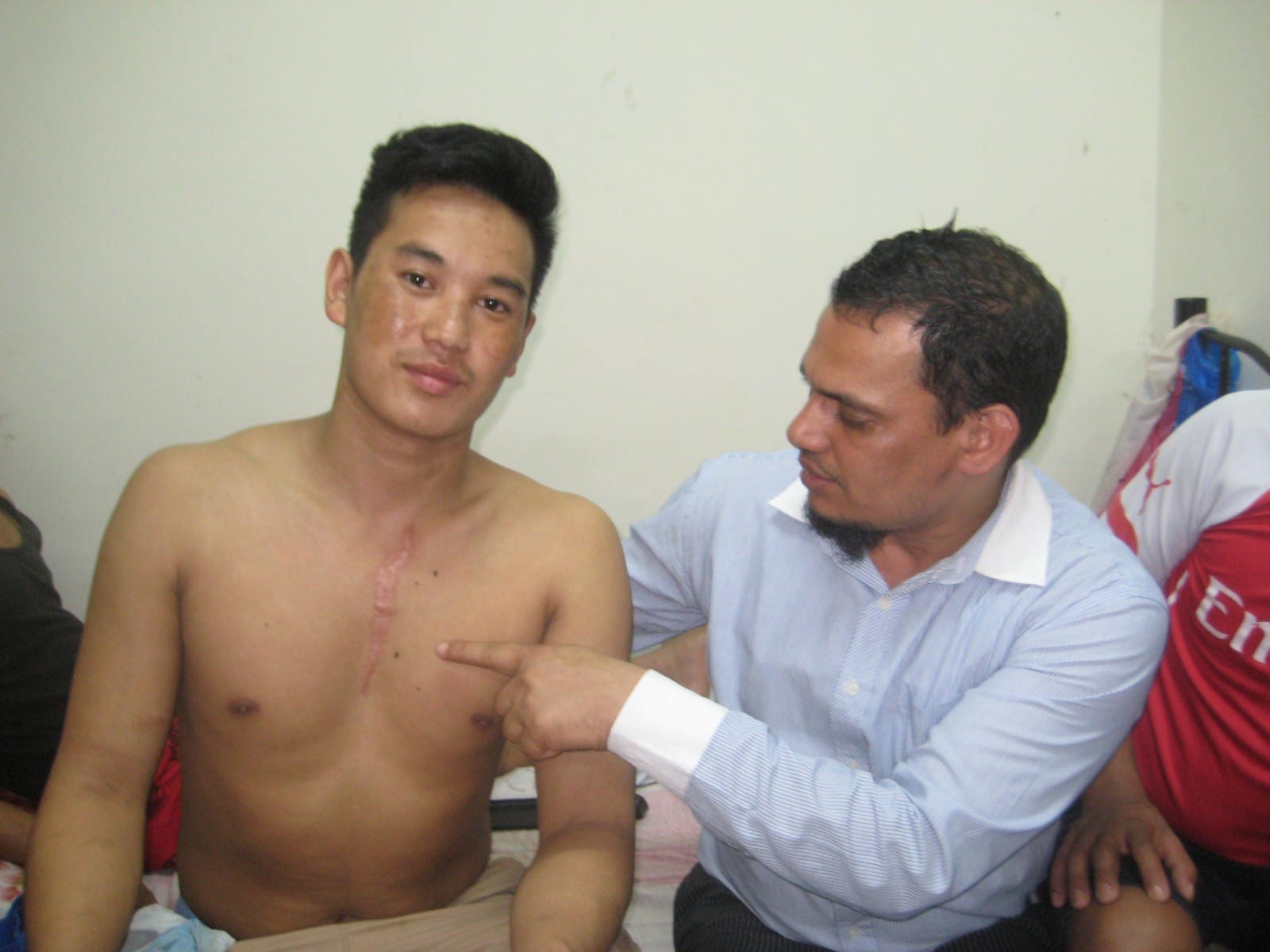
Jan 19, 2016
Migrant workers at a glass factory in Malaysia say that for the past year, they have been forced to work 16-hour days, Monday through Friday, and eight-hour days on Saturdays and Sundays—without a day off. Injuries are common, such as the deep, seven-inch long gash one worker suffered on his chest while carrying glass.
Their report is the latest in a litany of continuing violations of migrant worker rights compiled by the Malaysian Trades Union Confederation (MTUC) and the General Federation of Nepalese Trade Unions (GEFONT), both Solidarity Center allies.
Over the past year, MTUC and GEFONT have documented hundreds of cases of employer abuse of migrant workers in Malaysia, often rising to the level of forced labor. Many of these workers, from China, India, Nepal, Sri Lanka and elsewhere, say their employer had not paid them, or had given them wages far below what they had been promised before leaving home. Female workers report being sexually assaulted by their employers.
Some 400 workers from Nepal died last year in Malaysia, according to Nepal’s labor attaché, who spoke before nearly 200 workers taking part at an MTUC-sponsored International Migrants Day event last month.
Migrant workers also suffer slave-like conditions on Malaysia’s palm oil plantations, according to a Wall Street Journal report last year.
Despite a slowing economy, employers in Malaysia are recruiting more migrant workers because they are paid less and do not receive social protection benefits, says N. Gopal Kishnam, MTUC general-secretary.
“Companies like to bring in foreign workers because they are easier to manage compared with locals. They also work hard and complain less,” Gopal told the Malaysian Insider.
A Malaysian employers’ group estimates that 20,000 workers were laid off last year, excluding 6,000 Malaysian Airlines workers who were let go as part of that company’s restructuring plan. Gopal said the figure is likely to be twice as high.
In July, the U.S. State Department upgraded Malaysia in its annual Trafficking in Persons Report, citing the country’s “significant efforts” to eliminate human trafficking.
“Many employers are still wrongly holding on to passports and work passes/visas/permits,” the MTUC said last year. “When workers claim their rights through existing legal avenues, many employers simply terminate their workers, and for migrant workers this also mean the loss of ability to stay in Malaysia which is a requirement in law if they want to pursue their claims for justice.”






